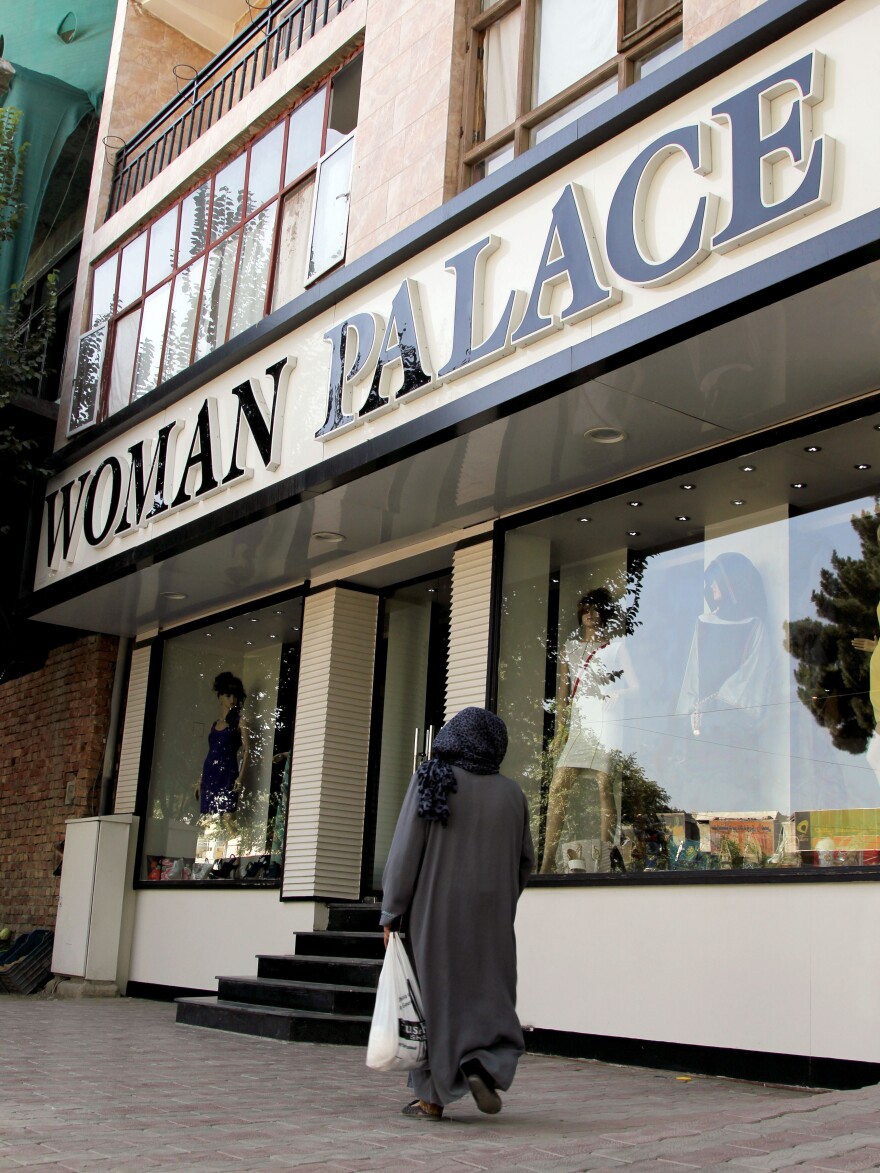As I've been reflecting on the past 2 1/2 years that I've spent in Kabul, it's struck me how much has and hasn't changed. People continue to flood into the city, further straining its infrastructure and services.
But my neighborhood has seen mostly positive changes since I moved to it in 2012.
As I walk out my front door — and step over the open sewer trenches that line most of the city's streets — the most pronounced change is the pavement. When I moved in, there wasn't any. The street was nothing but dirt, and it had craters so deep, small cars could seemingly disappear inside them.
When it rained, the street looked like something you'd imagine in medieval Europe.

But, after what felt like an endless period of construction that stopped and started several times, the street was finished and is still holding up — that's something that can't be said for many other streets paved in my time here that are again crumbling.
As I walk down to the end of my street, in front of me is a gleaming new four-story shopping center that was built since I moved here. Inside are several dress shops, a small grocery store and a shawarma restaurant. The architectural style can best be described as postmodern, ancient-revival tacky.
Across from the shopping center is an old barbershop I've frequented. It's old-school — straight-razor shaves and that vibrating silver contraption the barber puts on his hand to give you a head massage.
"The neighborhood is much better thanks to the new construction, road paving, and renovated sidewalks," says 22-year-old Hamid, who, like many Afghans, goes by one name. He's one of the barbers in this shop and says he's had more business thanks to the development.
Around the next corner by a police checkpoint are two new multistory shopping centers and another under construction. There are new clothing shops here, like Women Palace, which sells high-end and unexpectedly contemporary women's clothes.
"As a result of all this construction, more wealthy people have moved into the neighborhood," says Mohammed Essa, 23, who owns an older, more traditional shop. "The market area is more crowded than ever."
While the neighborhood has come a long way from the time packs of stray dogs wandered the muddy streets, it's hardly Beverly Hills. There are still plenty of rundown old shops, and the paint is already peeling off some of the new buildings, revealing the shoddy construction work underneath.
One of the most striking additions to the neighborhood is the space-age looking Shar-e-Now wedding hall. The wedding hall business continues to boom in Kabul. Even the poorest Afghans will spend lavish sums on a wedding in one of these halls.
This particular one is festooned with such an array of lights that at night it shimmers and sparkles to a point that would make the most ostentatious Vegas casino blush.
And despite falling property values and reduced demand as foreigners and their money leave Kabul, construction continues — all through the night on my street.
One of the most famous restaurants in the city is on my street. Recently it hopped into a new compound across the street. The old lot was demolished and a new structure is going up. Given the depth of the foundation, I'd guess the new building will be five to six stories tall, which happens to be illegal for a residential neighborhood like this. But the law certainly didn't stand in the way of the other tall buildings that sprung up next to my house.
Copyright 2021 NPR. To see more, visit https://www.npr.org.



